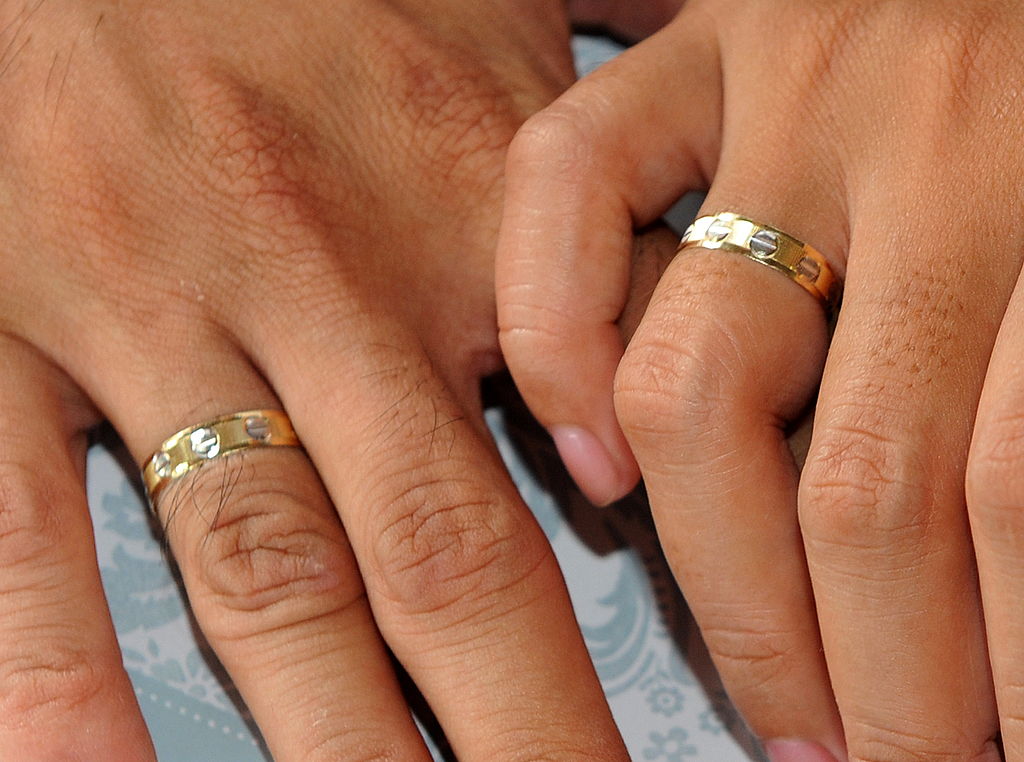Young people are having less sex, and not just because they’re getting married later. According to the General Social Survey, the percentage of never-married Americans between the ages of 18 and 35 who did not have sex in the past year rose from around 16 percent in 2000 to over 22 percent in 2021.
Why is this happening? There are plenty of theories.
In a 2018 piece for The Atlantic, editor Kate Julian came up with five: 1) porn and masturbation, 2) the elevation of other priorities over forming committed relationships, 3) the toxic dynamics hard-coded into dating apps, 4) advances in feminism that empower women to say no to sex they don’t want to have, and 5) an increase in anxiety disorders.
Psychologist Jean Twenge argued in her 2017 book iGen that an entire generation had simply fallen headfirst into their smartphones. Teens, she reported, are driving, drinking, dating, and doin’ it less, preferring instead to snap and scroll from the safety of their bedrooms.
Last September, New York Times columnist Michelle Goldberg heralded the dawn of a sexual counter-revolution. The women Goldberg interviewed (you can find plenty with similar opinions on TikTok) presented their rejection of sex positivity in (as Julian’s fourth point would suggest) feminist parlance. They are enraged that they were psy-opped into promiscuity and kink, often at tender ages. They suspect the whole #ProudSlut schtick was a tool of the patriarchy. They’re wondering if selling nudes on OnlyFans is as empowering as they’ve been told. But they are emphatically not interested in returning to any sort of traditional sexual ethic.
For religious conservatives like me, none of these explanations is particularly encouraging. The depictions of teens and young adults numbed by porn, disincarnated by screens, and too career-driven to look for love are all straightforwardly dystopian. Mary Harrington and Katherine Dee offer a portrait of the counter-revolution I can get behind to some degree. Backlash against pornography and casual sex are good. But as counter-revolutions go, it’s nowhere near radical enough. It leaves intact the central claims of the sexual revolution: that your body is your own to use as you please and that sex is whatever you want it to be.
Dig into the data a little further, though, and there is cause for hope. Brendan Hodge at the Catholic publication The Pillar has done some helpful analysis:
[U]nmarried young adults who…go to church regularly seem to be avoiding premarital sex more than they were in the recent past.
From 2000 to 2006, 40% of unmarried young adults who reported going to church at least once a week said that they also had not had sex within the last year. In the 2014 to 2021 surveys, 50% of church-going young adults said they had not had sex within a year.
Among those who go to church once a year or less, the change was only from 13% to 16%.
Hodge also argues that the dwindling minority of never-married Americans who think sex should be saved for marriage are doing a better job of sticking to their convictions. In the early 2000s, 75 percent of 18-to-35-year-olds who said drinking the milk before buying the cow was (at least sometimes) wrong had nevertheless enjoyed a frosty glass or two within the last year. For the period between 2014 and 2021, that number was down to 64 percent, an 11-point shift. Among those who think pre-marital sex is no big deal, the shift was from 91 percent to 88 percent.
Hodge’s findings line up perfectly with predictions and observations CS Lewis made in his 1946 essay “The Decline of Religion,” in which he addressed the collapse of civic religion in Britain. “When no man goes to church except because he seeks Christ the number of actual believers can at last be discovered,” Lewis wrote. “The fog of ‘religion’ has lifted; the positions and numbers of both armies can be observed; and real shooting is now possible.”
In America, cultural Christianity held the line longer than in most wealthy countries. Ross Douthat’s theory is that backlash against the overt religiosity of the Bush 43 administration finally ushered in the age of the “nones.” The religiously unaffiliated jumped from 16 percent of the population in 2007 to 26 percent in 2019, even as the percentage of self-identified Christians fell from 78 percent to 65 percent.
This decline comes with some blessings. Lewis said it would give Christians greater clarity. Hodge’s analysis shows it could also spur them to live out their faith more fully.
Imagine a senior in high school. He goes to church every Sunday because he loves Jesus. He believes with all his heart that pre-marital sex is a sin and that it is God’s will that he wait for marriage. Now, let’s put this young man in two different scenarios.
Scenario 1: Our protagonist is surrounded by classmates who go to church because their parents drag them and who agree that pre-marital sex is wrong because that’s what’s been drilled into their heads. Many of these classmates sleep around.
Scenario 2: Our protagonist is surrounded by classmates who think Christianity is cringe and possibly bigoted. The very phrase “pre-marital sex” is a joke to them. Anyone who questions the morality of sex outside marriage is a villain straight out of The Handmaid’s Tale. Many of these classmates also sleep around.
In which of these scenarios is this 18-year-old more likely to succumb to temptation? Obviously the first. In Scenario 1, nothing excludes him from the mainstream as long as he doesn’t take this religion stuff too seriously. If every “Christian” you know is boffing his girlfriend, it’s natural to conclude that that’s an okay thing for a Christian to do.
In Scenario 2, there’s no question of him being viewed as normal. He experiences Christianity as a subculture, not the default setting. His celibacy doesn’t make him an object of mockery. It makes him based. By remaining virgin, he becomes Chad.
Expect to see more teens and young adults like him as cultural trends continue on their current trajectory.


















